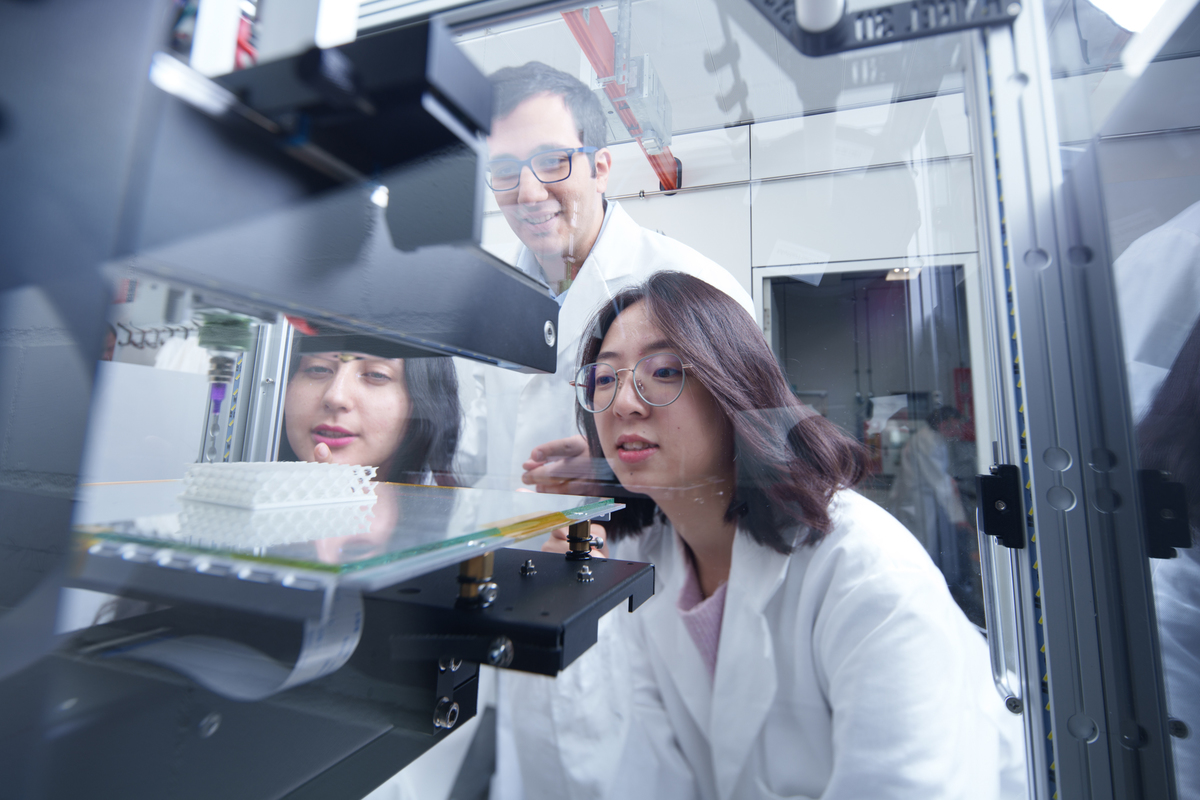Research Overview

In the Biomimetic Materials and Machines (B2M) Group we develop materials and hardware for next-generation robots designed for dynamic, natural environments. Focusing on soft robotics, stretchable electronics, and biomimetic systems, the group integrates functionalities directly into materials to enable complex behaviors and reduce system complexity. Additionally, our work emphasizes energy and resource efficiency, incorporating sustainable materials to minimize environmental impact. By leveraging advanced manufacturing techniques, the group creates innovative components, including actuators, batteries, and sensors, shaping a sustainable future for robotics through a holistic approach spanning materials design, manufacturing, and device integration.
The B2M group, led by Dr. Florian Hartmann, was established in March 2024 as an independent Max Planck Research Group at the institute’s site in Stuttgart. Operating at the crossroads of materials science, robotics, and electronics, B2M focuses on advancing the materials and hardware for future robotic embodiments, aiming for practical applications. As robots transition from operating in controlled environments to dynamic and unpredictable settings, our research centers on advancing soft robotics, stretchable electronics, and biomimetic machines designed to excel in such environments.
Drawing inspiration from nature, we aim to design soft and soft-hard hybrid systems that enhance efficiency, autonomy, and adaptability. Central to our approach is integrating functionalities directly into the materials themselves, enabling tasks and behaviors that traditional robots are struggling with, and enable them with reduced system complexity. This includes realizing locomotion strategies at smaller scales and exploring alternative materials such as biodegradable and self-healing polymers.
Biodegradable materials, in particular, open transformative possibilities for robotics. By leveraging renewable and degradable resources, we aim to reduce the environmental footprint of this rapidly growing sector. Sustainability, in our view, must be a core principle in the development of future technologies. Achieving this goal requires a fundamental shift in how we design and engineer robotic systems.
Our work follows a holistic approach, addressing multiple aspects of innovating technology, from materials development and manufacturing to device design. By leveraging and customizing advanced manufacturing techniques, such as multimaterial 3D printing, we are creating robot components with materials of our choice—advancing actuators, batteries, and sensors.